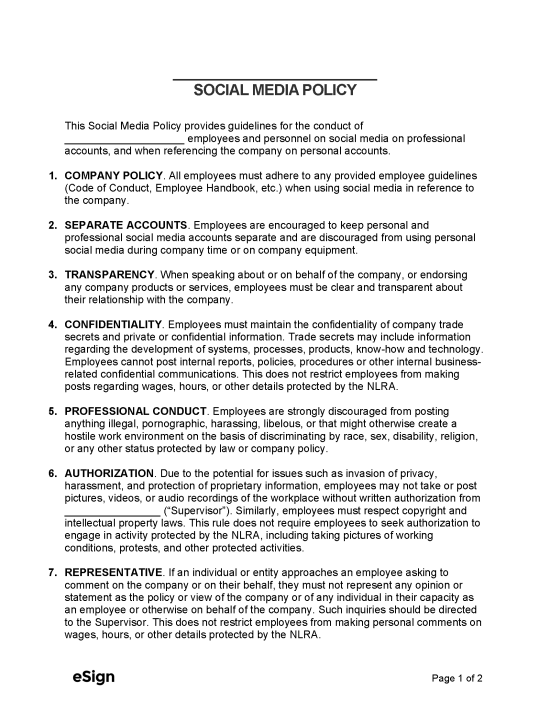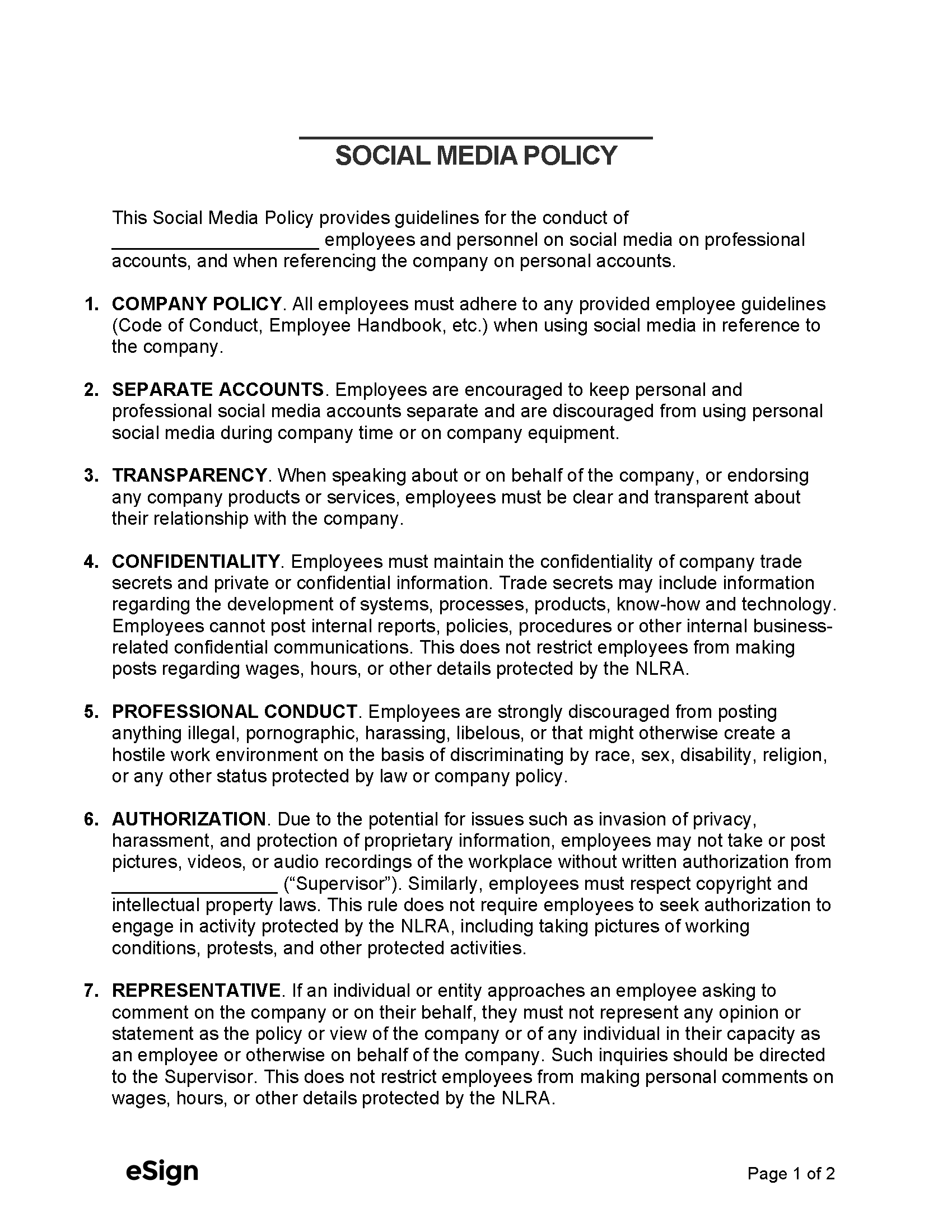[EMPLOYER NAME]SOCIAL MEDIA POLICY
This Social Media Policy provides guidelines for the conduct of [EMPLOYER NAME] employees and personnel on social media on professional accounts, and when referencing the company on personal accounts.
1. COMPANY POLICY. All employees must adhere to any provided employee guidelines (Code of Conduct, Employee Handbook, etc.) when using social media in reference to the company.
2. SEPARATE ACCOUNTS. Employees are encouraged to keep personal and professional social media accounts separate and are discouraged from using personal social media during company time or on company equipment.
3. TRANSPARENCY. When speaking about or on behalf of the company, or services, employees must be clear and transparent about their relationship with the company.
4. CONFIDENTIALITY. Employees must maintain the confidentiality of company trade secrets and private or confidential information. Trade secrets may include information regarding the development of systems, processes, products, know-how and technology. Employees cannot post internal reports, policies, procedures or other internal business-related confidential communications. This does not restrict employees from making posts regarding wages, hours, or other details protected by the NLRA.
5. PROFESSIONAL CONDUCT. Employees are strongly discouraged from posting anything illegal, pornographic, harassing, libelous, or that might otherwise create a hostile work environment on the basis of discriminating by race, sex, disability, religion, or any other status protected by law or company policy.
6. AUTHORIZATION. Due to the potential for issues such as invasion of privacy, harassment, and protection of proprietary information, employees may not take or post pictures, videos, or audio recordings of the workplace without written authorization from [SUPERVISOR NAME] (“Supervisor”). Similarly, employees must respect copyright and intellectual property laws. This rule does not require employees to seek authorization to engage in activity protected by the NLRA, including taking pictures of working conditions, protests, and other protected activities.
7. REPRESENTATIVE. If an individual or entity approaches an employee asking to comment on the company or on their behalf, they must not represent any opinion or statement as the policy or view of the company or of any individual in their capacity as an employee or otherwise on behalf of the company. Such inquiries should be directed to the Supervisor. This does not restrict employees from making personal comments on wages, hours, or other details protected by the NLRA.
8. GUIDANCE. Employees should notify the Supervisor of antagonistic online conversations with non-employees, or if they come across any maliciously false or unlawful content regarding the company online. Employees should seek the help of the Supervisor if a customer contacts them on social media, or before posting any content in which they are unsure whether it discloses proprietary information (as defined above). This rule does not require employees to seek the help of the Supervisor before engaging in online conversations or making posts regarding wages, hours, or other details protected by the NLRA, or if they come across any content concerning the same online.
9. DISCIPLINARY ACTION. Please be aware that we may see content and information publicly posted by employees on social media. On or off‐hours online activity that violates company policy may result in disciplinary action or termination.

